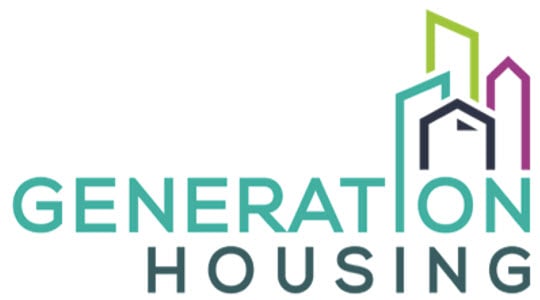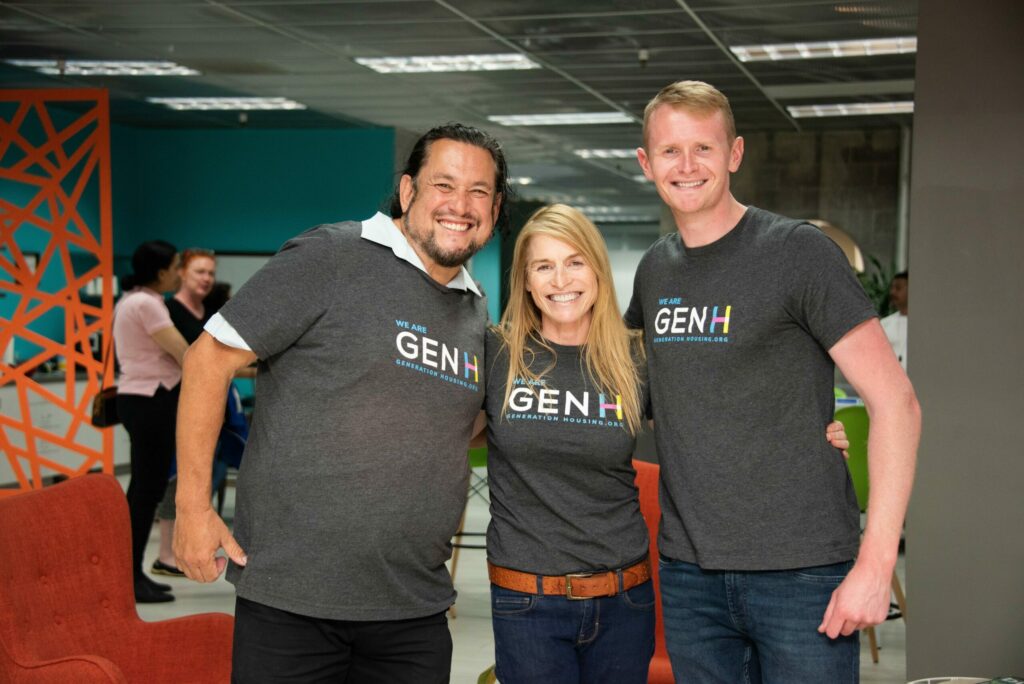Dear Neighbor,
A friend recently told me that her employer’s gratitude coach emphasized that a meaningful gratitude practice had to include not just the easy obvious happy stuff (friends! good health!) but the challenges we face that serve to make us better people. It’s with both of those ideas, the easy stuff, and the challenging stuff, that I say, and I speak for the whole Generation Housing team: we are grateful for our jobs.
We are grateful that we have jobs that pay a living wage, that offer some flexibility in how and where we work, that provide quality healthcare benefits and retirement plan opportunities. We know that not everyone has all, or any of these things, and for these things we are deeply grateful.
We are also grateful that we have the opportunity to make a difference in one of the critical challenges facing the people in our community, a difference that will be felt, if not immediately, in the not so distant future, as we help clear the way for more sticks in the ground, more house keys in hands, and more people who can do better with their paychecks than just “make the rent.” We are especially grateful that we have the opportunity to make policy changes in our local housing system that can have enduring, generational impact.
And a former school board colleague often said, real change is real hard. And we are grateful this work is hard. Changing institutional policy and practice requires that we be better problem solvers. It requires that we are courageously visionary, which requires a sort of public vulnerability. Committing to maintaining a collaborative, big tent organization requires that we learn to approach this work with humility, embrace the concept of redemption and forgiveness, admit and learn from our mistakes, and engage in difficult conversations, diving into the gray nuance of issues often fraught with political pitfalls, differing perspectives, deeply ingrained fears, and confusing data.
And speaking just for myself, as a practical matter, doing this work, which operates on several parallel paths, requires that I get better at organization and prioritization. Perhaps those skills will bleed over into my regular life and I will lose my keys less often and, at least sometimes, embrace a more relaxed pace.
And so we say thank you for the grant funding, contract funding, and memberships that make our jobs possible, thank you to our Advisory Board, committee members, and frequent volunteers for supporting our work, and thank you to each of you who are willing to join us in speaking up for bold housing solutions, even when it’s hard. You are Gen H.
Jen Klose, Executive Director

